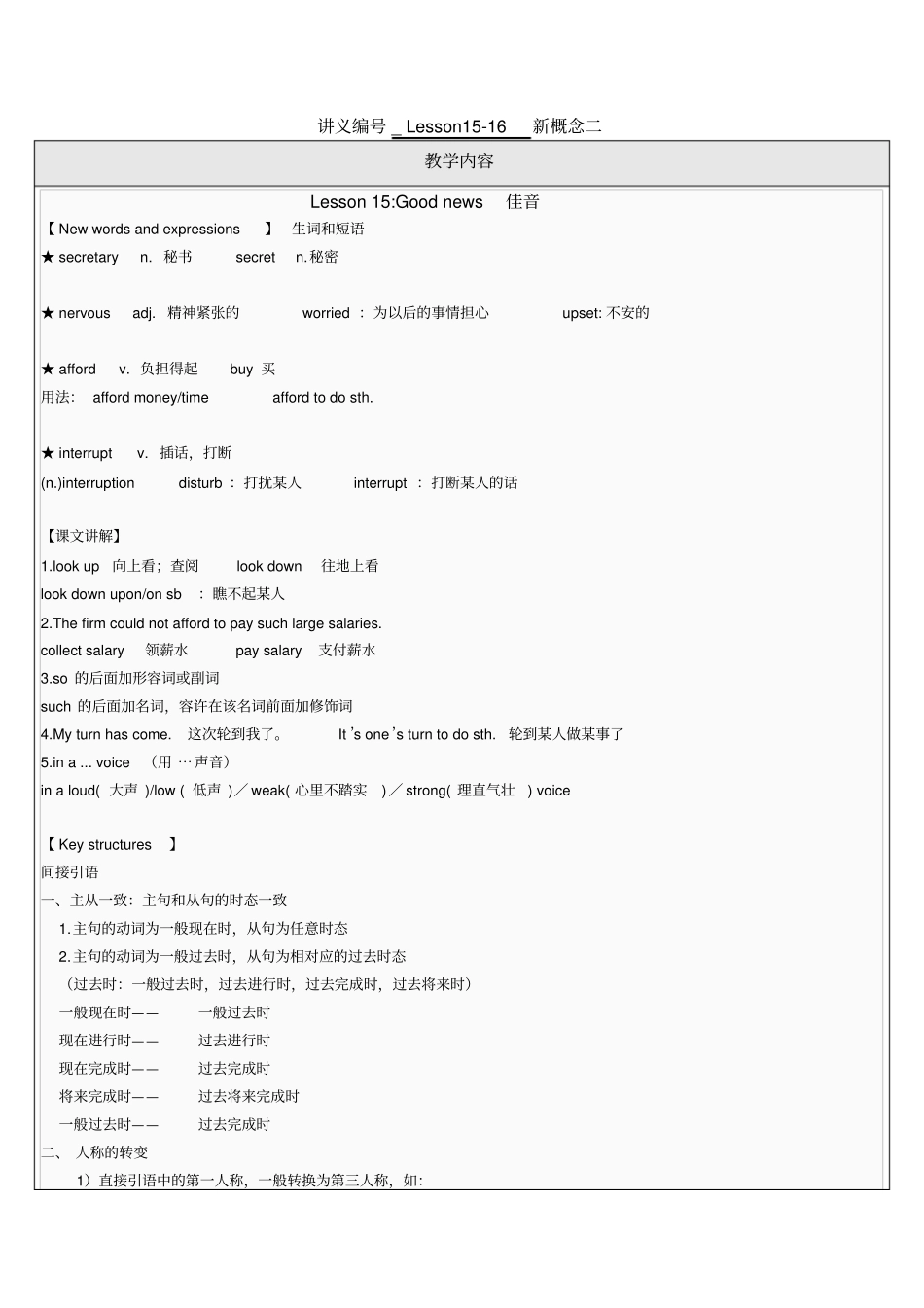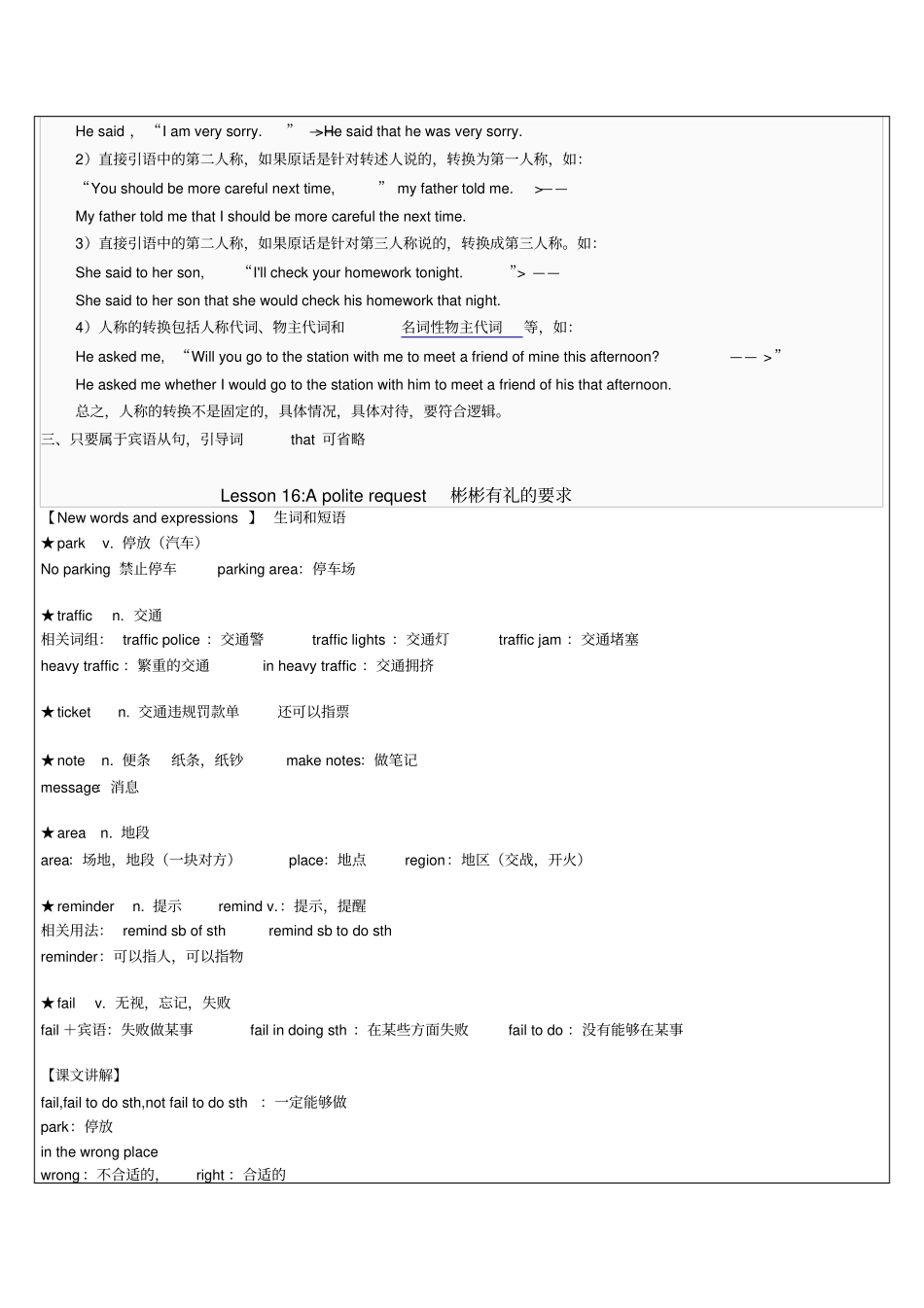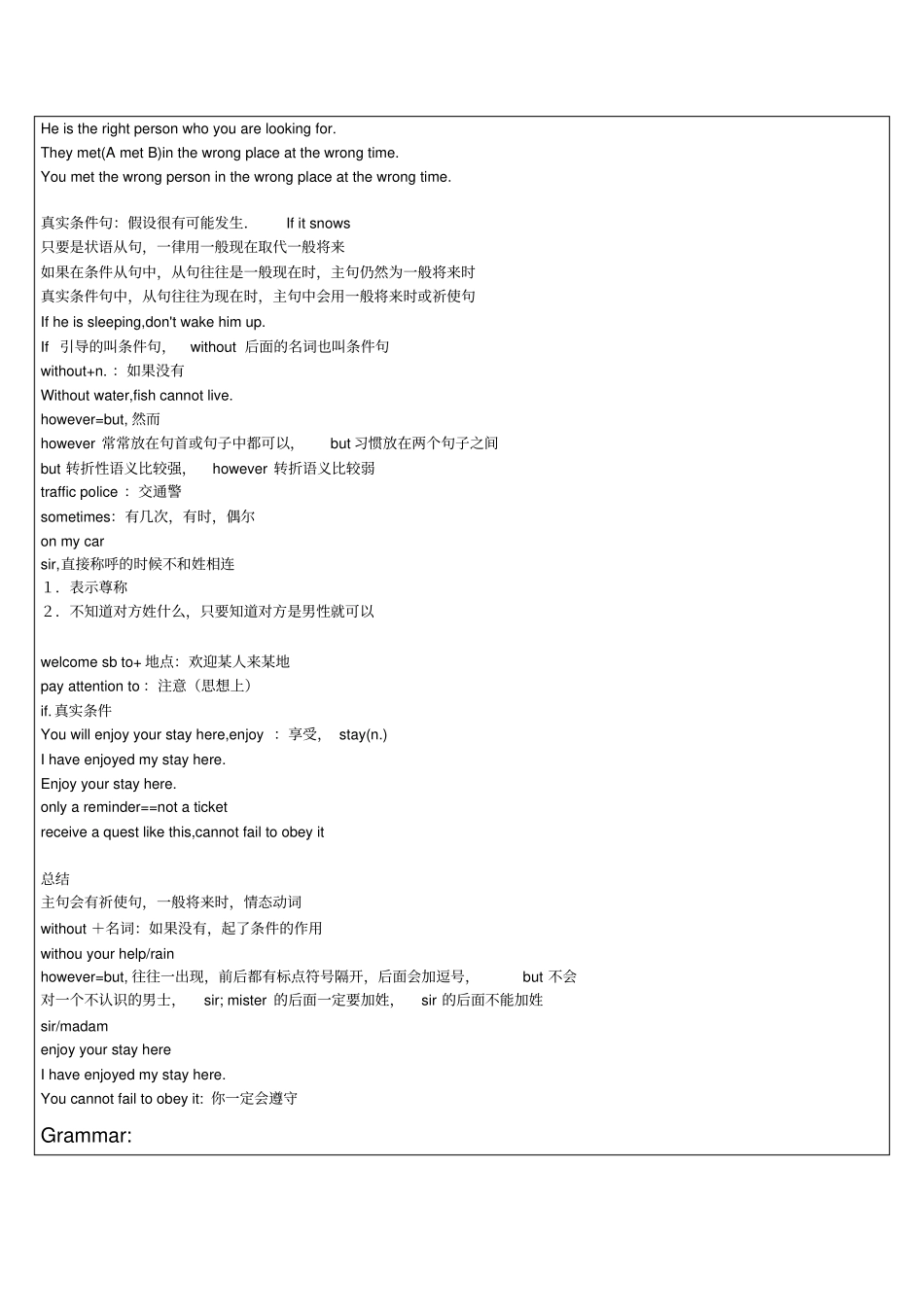讲义编号 _ Lesson15-16 新概念二教学内容Lesson 15:Good news 佳音【 New words and expressions】生词和短语★ secretaryn. 秘书secret n.秘密★ nervousadj. 精神紧张的worried :为以后的事情担心upset: 不安的★ affordv. 负担得起buy 买用法: afford money/time afford to do sth. ★ interruptv. 插话,打断(n.)interruption disturb :打扰某人interrupt :打断某人的话【课文讲解】1.look up向上看;查阅look down 往地上看look down upon/on sb:瞧不起某人2.The firm could not afford to pay such large salaries. collect salary 领薪水pay salary 支付薪水3.so 的后面加形容词或副词such 的后面加名词,容许在该名词前面加修饰词4.My turn has come.这次轮到我了。It ’s one ’s turn to do sth.轮到某人做某事了5.in a ... voice(用 ⋯声音)in a loud( 大声 )/low ( 低声 )/ weak( 心里不踏实)/ strong( 理直气壮) voice 【 Key structures】间接引语一、主从一致:主句和从句的时态一致1.主句的动词为一般现在时,从句为任意时态2.主句的动词为一般过去时,从句为相对应的过去时态(过去时:一般过去时,过去进行时,过去完成时,过去将来时)一般现在时——一般过去时现在进行时——过去进行时现在完成时——过去完成时将来完成时——过去将来完成时一般过去时——过去完成时二、 人称的转变1)直接引语中的第一人称,一般转换为第三人称,如:He said , “I am very sorry.” ——>He said that he was very sorry. 2)直接引语中的第二人称,如果原话是针对转述人说的,转换为第一人称,如:“You should be more careful next time,” my father told me.——> My father told me that I should be more careful the next time. 3)直接引语中的第二人称,如果原话是针对第三人称说的,转换成第三人称。如:She said to her son, “I'll check your homework tonight.” ——> She said to her son that she would check his homework that night. 4)人称的转换包括人称代词、物主代词和名词性物主代词等,如:He asked me, “Will you go to the station with me to meet a friend of mine this afternoon?” —— > He asked me whet...


